Culture
The definitions of what is culture may change but the practice of understanding, and unpicking cultural history is an important dimension to understanding any historical period. In this section articles explore the way that definitions of culture have changed and how those changes have affected values and attitudes. The impact of the written word on fashions and ideas and the role of historic movements such as the renaissance are all addressed in this section.
Sort by:
Date (Newest first) | Title A-Z
Show:
All |
Articles |
Podcasts |
Multipage Articles
-

Historical anniversaries calendar
ArticleClick to view -
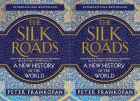
Triumphs Show: Embracing scholarship to guide Year 7 on an exploration of the Silk Roads
ArticleClick to view -
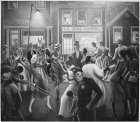
Lengthening Year 9’s narrative of the American civil rights movement
ArticleClick to view -
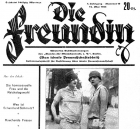
Triumphs Show: Recovering the queer history of Weimar Germany in GCSE history
ArticleClick to view -
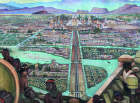
Year 7 challenge stereotypes about the Mexica
ArticleClick to view -

What Have Historians Been Arguing About... youth culture?
ArticleClick to view -

Imagining cities: exploring historical sites as contested spaces
ArticleClick to view -

Cunning Plan 192: A suggested itinerary for visiting Berlin
ArticleClick to view -

Developing KS3 students’ ability to challenge their history curriculum through an early introduction of significance
ArticleClick to view -

Film: “The Talk Should Not Be Broadcast”: Homosexuality and the BBC before 1967
ArticleClick to view -

Year 7 use oral traditions to make claims about the rise and fall of the Inka empire
ArticleClick to view -
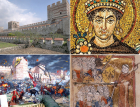
Planning a more diverse and coherent Year 7 curriculum
ArticleClick to view -

In pursuit of shared histories: uncovering Islamic history in the secondary classroom
ArticleClick to view -

Broadening and deepening narratives of Benin for Year 8
ArticleClick to view -

How history learners can ‘dig school’ under lockdown
ArticleClick to view -

How introducing cultural and intellectual history improves critical analysis in the classroom
ArticleClick to view -

What Have Historians Been Arguing About... migration and empire
ArticleClick to view -

Cunning Plan 178: How far did Anglo-Saxon England survive the Norman Conquest?
ArticleClick to view -

Historical scholarship, archaeology and evidence in Year 7
ArticleClick to view -
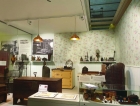
Triumphs Show 176: Using material culture as a means to generate an enquiry on the British Empire
ArticleClick to view

